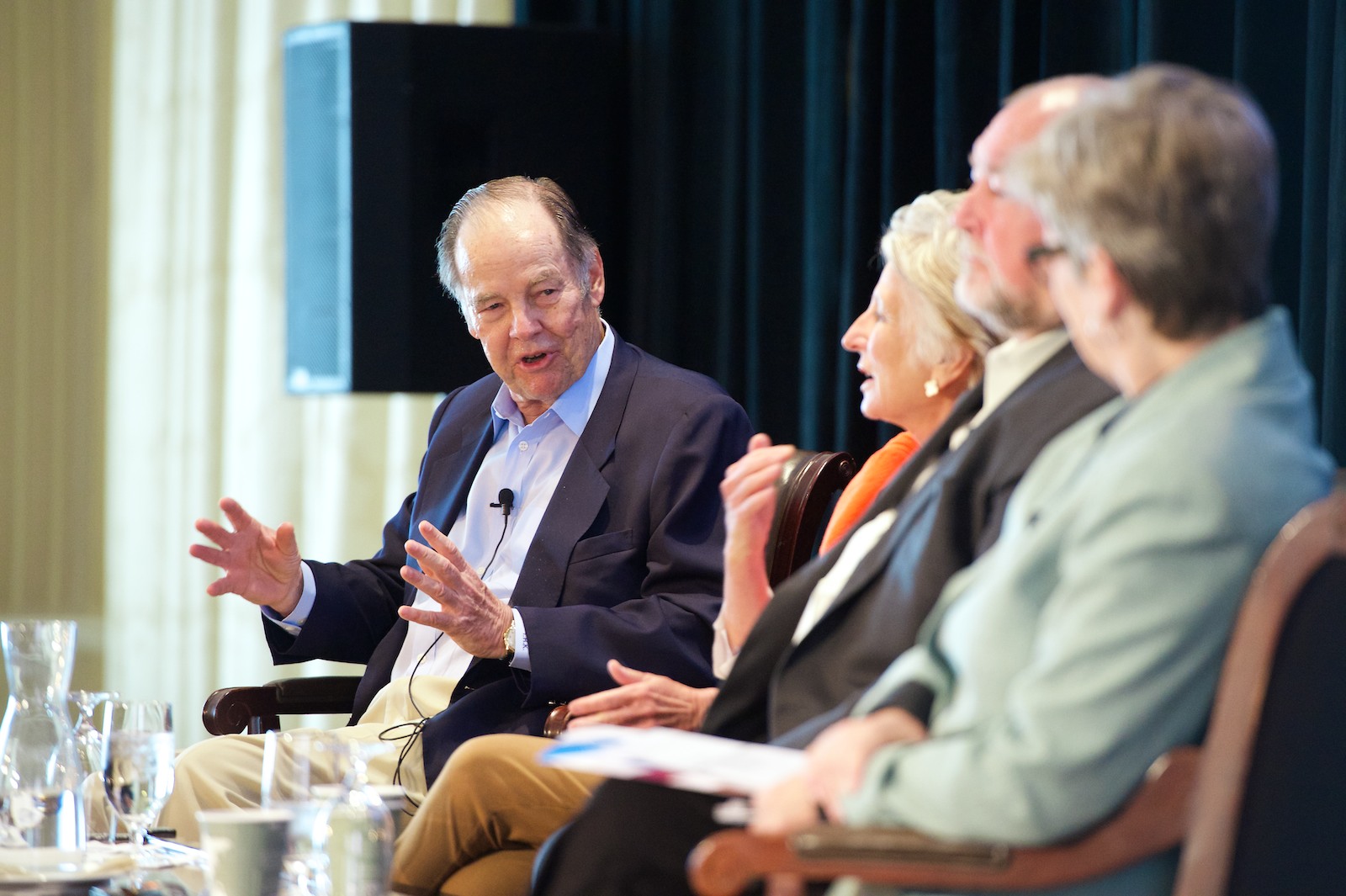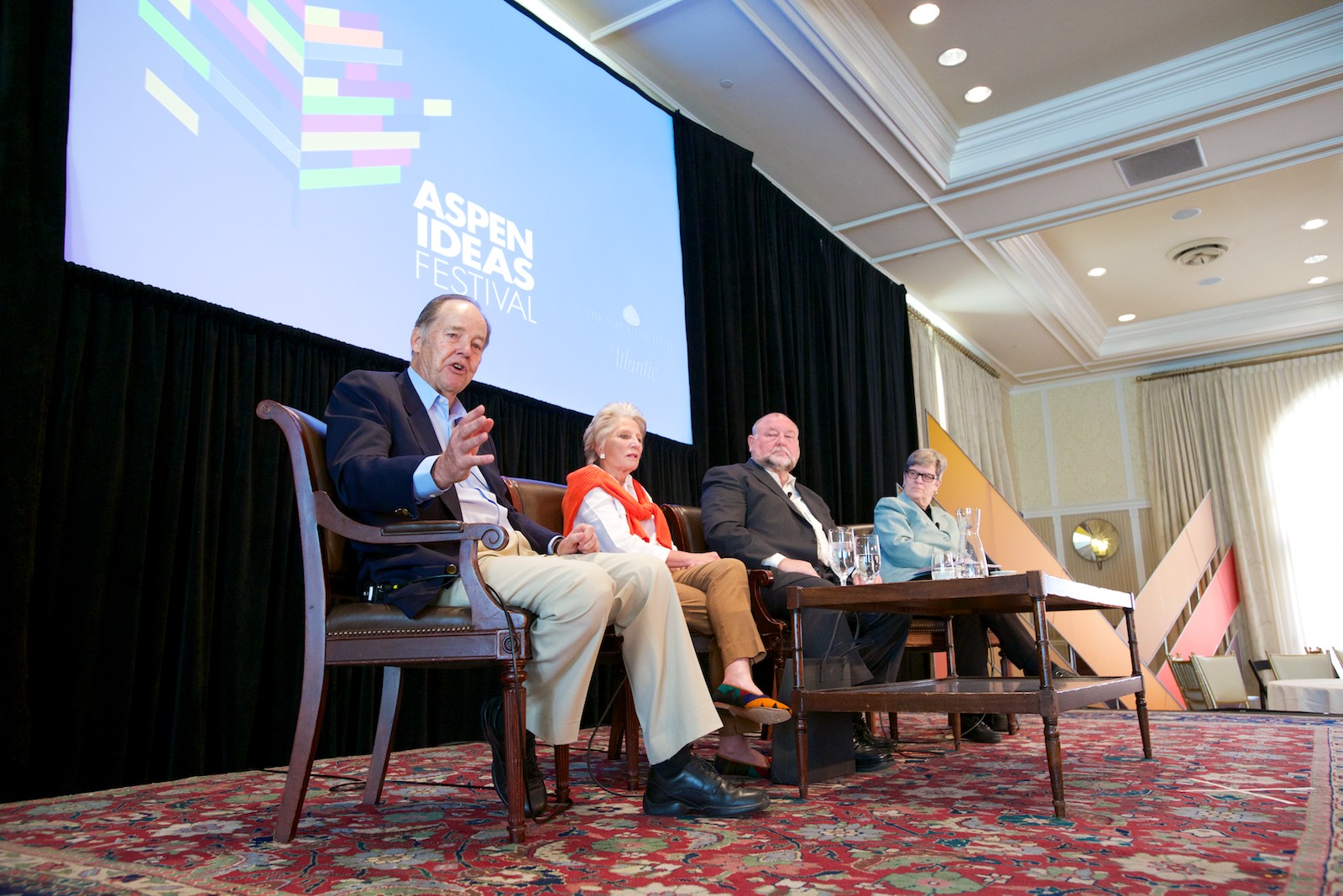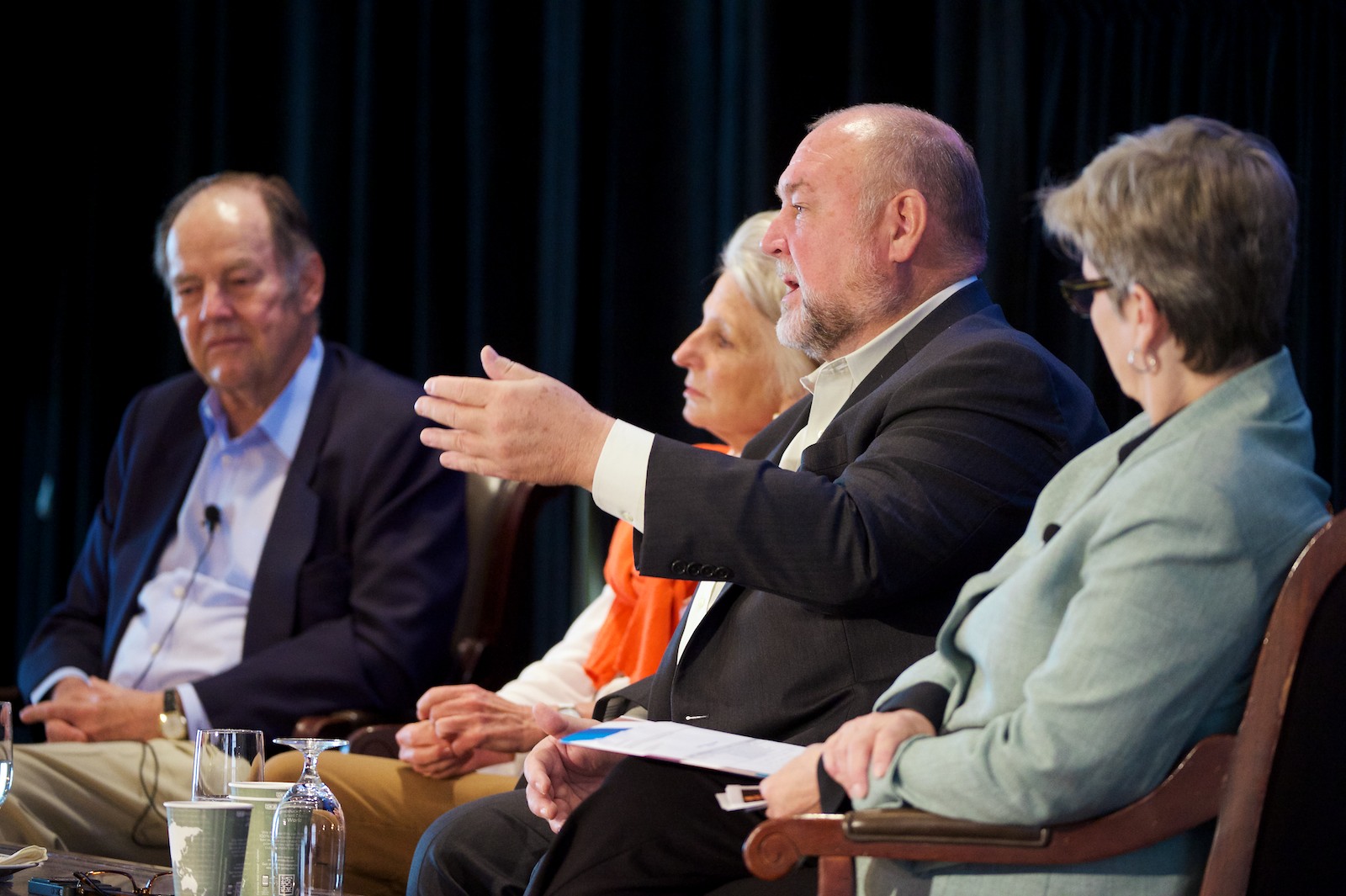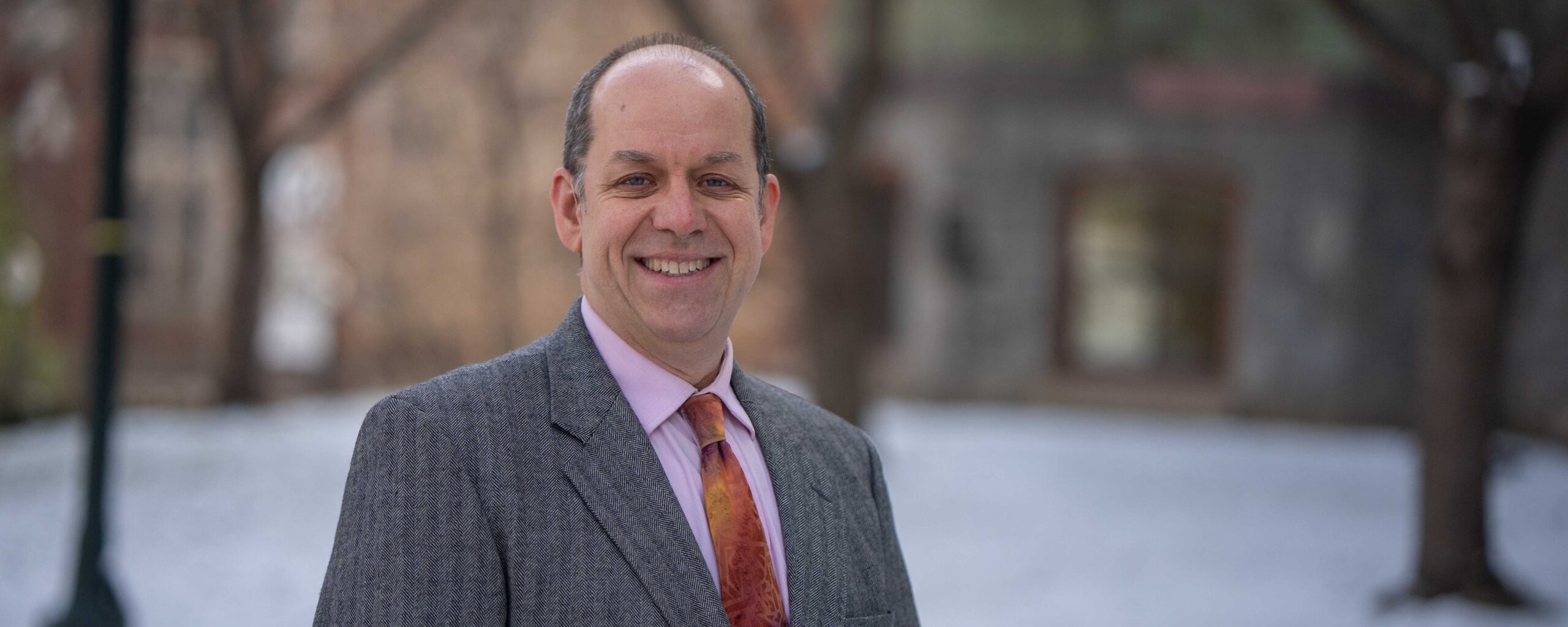ASPEN, Colorado — Speaking at the 2014 Aspen Ideas Festival, a panel of experts on national security including former 9/11 Commission chairman Thomas H. Kean agreed that the nation is not as safe as it could or should be. One of the problems, they said, was that Congressional oversight of the Department of Homeland Security was in the hands of too many overlapping committees and subcommittees, so critical issues were not being dealt with.
The panel, questioned by moderator Kathleen Hall Jamieson, director of the Annenberg Public Policy Center of the University of Pennsylvania, concurred that the United States is better prepared today for terrorist attack than it had been before Sept. 11, 2001. But they said the nature of the threat was vastly different today, and important steps had not yet been taken to improve security.

“The threat has changed,” said Kean, a former governor of New Jersey. “We need to adapt to that threat. Cyber is the real threat today… We’re not on top of cyber. Offense is ahead of defense.” He added that there are cyber-attacks on U.S. government computers “every day,” but responsibility in Congress for dealing with cybersecurity has not been resolved — in part, because of the jurisdictional issues involving conflicting committees.
Kean added that every former Homeland Security Secretary has said to him of Congress, “They keep us less safe because we have to report to 100 committees.”
“The business model of Congress is broken,” said Jane Harman, director, president and CEO of the Woodrow Wilson Center and a former U.S. Representative from California. “The paradigm is to blame the other side for not solving a problem.”
The third panelist, Admiral (Ret.) Thad Allen, a former Commandant of the U.S. Coast Guard and an executive vice president of Booz Allen Hamilton, gave the example of the Immigration and Naturalization Service, which is part of the Department of Homeland Security but is overseen by the House and Senate Judiciary committees.

“We need to focus on creating organizational response structures and governance that allow us to be responsive and adaptable to the threats we face,” Allen said. “We haven’t done that in the past 10 years largely because of the problems with oversight in Congress over the Department of Homeland Security.”
The panelists expressed concern over growing threats such as ISIS, the Islamic State of Iraq and Syria, the terrorist organization that has killed thousands and captured a large swath of land in Iraq and Syria.
“9/11 happened because terrorists were allowed sanctuary to train fighters and to plot in Afghanistan,” Kean said. “We said we’d never ever allow the terrorists to have a sanctuary to plot and plan against the United States,” and that is exactly the threat the United States faces in the territory overrun by ISIS.
At the July 2 panel, “In Depth: Ten Years After the 9/11 Commission Report, Are We Safe?” Kean observed that the workings of intelligence agencies were often examined by Congress behind closed doors, out of sight of the press and public, making thorough and careful scrutiny ever more essential. “You don’t know anything about it because it is classified. And if [Congress is] not doing the job, then nobody is doing that job,” he said.

Kean and Allen were members of the Sunnylands-Aspen Institute Task Force, a group of experts in homeland security that was convened in 2013 by the Annenberg Foundation Trust at Sunnylands and the Aspen Institute Justice & Society Program. In their report the group urged that Congress follow the recommendation of the 9/11 Commission and streamline the oversight of the Department of Homeland Security.
Harman said that in streamlining the oversight of Homeland Security, presidential leadership is essential. “I hope it’ll be an issue for the next president,” Harman said.
Kean noted that Congressional leaders had the ability to make the difference. “We actually believe in the Congressional leadership,” he said. “If there is bipartisan leadership [and they] make a decision by the beginning of the next session to fix the committee structure, they could do it.”


